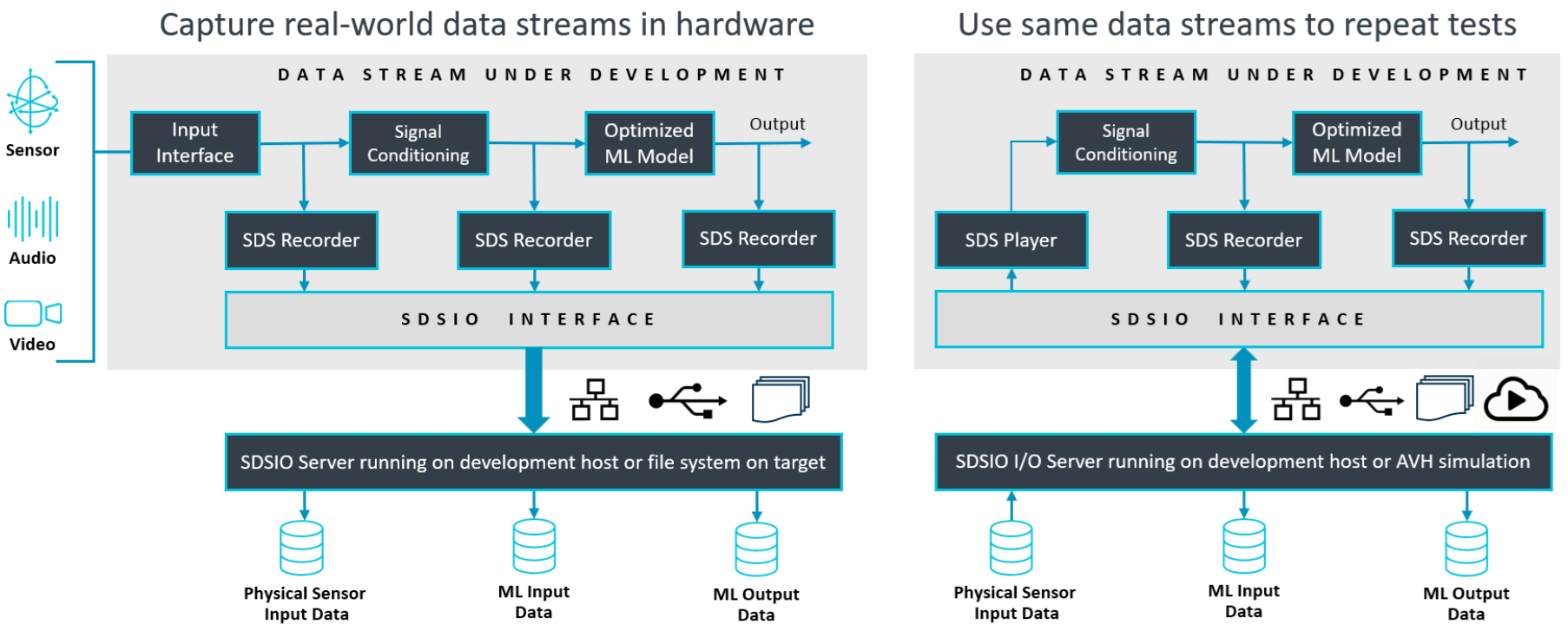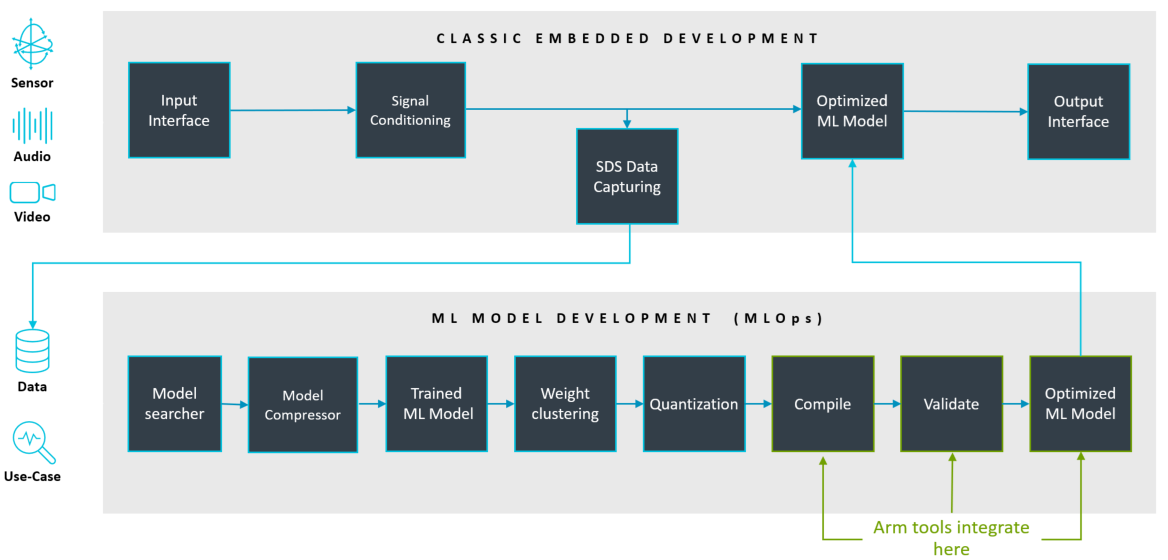- Packs
- SDS
SDS
2.0.0-
Pack Type
Software Pack
Synchronous Data Stream (SDS) Framework
-
Add to CMSIS Solution
packs:- pack: ARM::SDS@2.0.0
Add with cpackget
> cpackget add ARM::SDS@2.0.0
Download
ARM.SDS.2.0.0.packRepository
SDSOverview
The Synchronous Data Stream (SDS) Framework streamlines the development of DSP algorithms, ML models, and Edge AI applications that process periodic data streams, typically fixed-size data blocks captured at regular time intervals. SDS also supports variable-sized data blocks and irregular timing required for applications with sensor fusion. These data streams are stored in SDS data files.
By deploying the SDS template application to hardware (e.g., evaluation boards or custom products), you can record and playback multiple data streams during application development. This enables real-time capture of sensor, audio, and video inputs, alongside algorithm outputs, directly on target hardware. Ready-to-use SDSIO implementations use the MDK-Middleware for SDS data file storage on a development host computer or on a memory card in the embedded target.
The SDS template application supports two deployment targets: physical hardware or simulation via Arm Virtual Hardware - FVP. Simulation enables cost-effective, automated regression testing on desktops or in cloud-based CI/MLOps pipelines.

Captured data streams simplify many stages of development:
- Validate input data streams or algorithm output data streams.
- Feed data streams to DSP tools (e.g., filter design) or MLOps systems (for training).
- Provide reproducible inputs for simulations via Arm Virtual Hardware , including CI environments.
With MLOps integration, SDS enables efficient dataset handling for classification, training, and performance tuning of ML/AI models.

Features
- Flexible data stream handling for sensor, audio, and video interfaces.
- Multi-interface stream support with time drift compensation (e.g., for sensor fusion).
- Record real-world target data for analysis and development.
- Replay data on hardware or AVH-FVP simulation for algorithm validation.
The content of SDS data files may be described with a YAML metadata file for use cases such as:
- Input for DSP tools (e.g., filter designers).
- Input for ML training, testing, and optimization.
- Offline validation of DSP/ML models.
Python-based utilities are provided for recording, playback, visualization, data conversion, and verification of the SDSIO communication.
Links